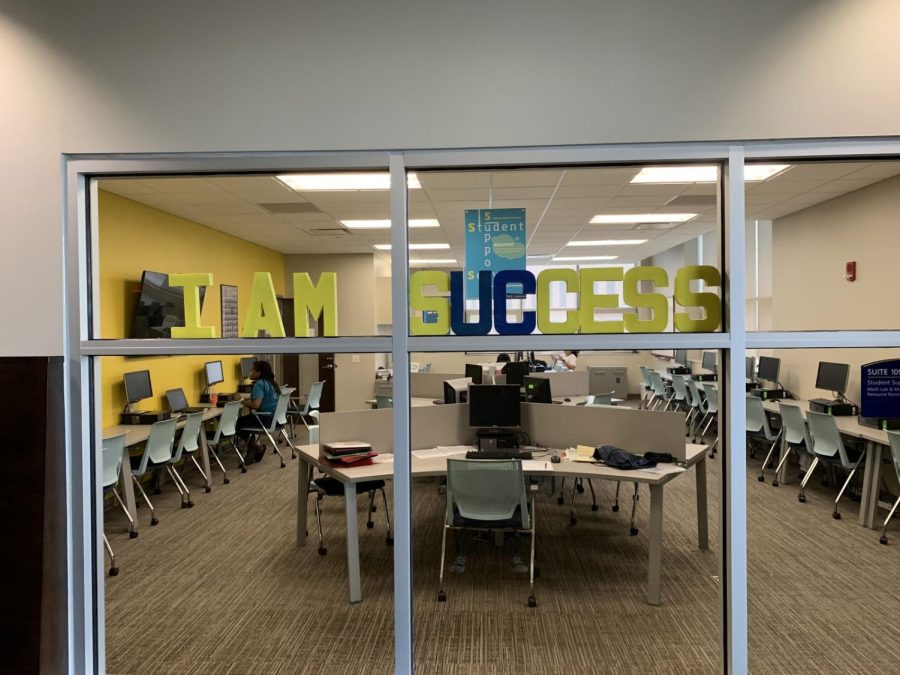Student Support Services finds new challenges and successes with transition to virtual climate
Forced to pull in-person engagement due to the pandemic, Student Support Services instilled new adjustments to its program that proved to be a new challenge for the program.
The support network for first-generation college students who come from disadvantaged backgrounds.
SSS had to reduce its hours of operations in its physical location with limited capacity.
“It’s literally like a ghost town,” said Khandi King, one of the graduate assistants in SSS. “The engagement has definitely changed.”
Located in the Center for Undergraduate Excellence, the office is available for walk-in hours on Mondays through Fridays from 8 a.m. to 5 p.m.
One significant element SSS offers to students is academic support. Tutoring is still available; however, all sessions and appointments are virtual until further notice.
Although SSS found a decline in participation with tutoring, the adjusted format proved beneficial for students. Beginning this semester, SSS has expanded tutoring sessions through evenings and on weekends.
“Because we are virtual, we don’t have to worry about a physical space being open,” said Adam Cinderich, the director of Student Support Services. “We expanded our tutoring hours which works for students who aren’t available throughout the day.”
However, SSS continues to experience challenges with recruiting students due to the lack of opportunities to engage with them.
“It’s been really challenging to figure out how we can let students know that we’re still here for them,” said Cinderich.
Typically, SSS relied on large-scale events, like Destination Kent State in the summer, for recruitment and meeting with students who are eligible for the program. Now, SSS primarily focuses on virtual outreach to communicate with students.
Utilizing phone calls and emails, outreach can include explaining what SSS is, answering questions from students and getting them excited about applying for the program.
“This has been more difficult to achieve since students can’t envision themselves being in our space,” said Cinderich.
Students who do become a part of SSS can participate in engaging virtual workshops. Some of the workshops SSS offers cover the understanding of student loans and how to manage them, along with preparing students on how to file for taxes.
Other programs students can register for are virtual graduate school visits. SSS had the opportunity of touring Florida A&M University on March 12.
One upcoming program Ciderich expressed excitement for involves a virtual culture tour of London.
“Each student that registers will be sent a travel care package before our ‘departure,’” said Cinderich. The event will take place sometime in early May.
SSS also offers free drive-thru food distributions throughout the semester. Held sporadically in Dix Stadium, SSS distributed frozen and canned foods to students who were a part of the program. The group also delivers food to students who don’t have adequate transportation.
“I have personally delivered groceries to students myself,” said King, “It’s hard to feel support sometimes. I am a student myself so I can understand where they’re coming from.”
To qualify for SSS, students must be first-generation college students who come from disadvantaged financial backgrounds.
Students interested in applying to SSS or those who want more information can visit their website. They can also email SSS at [email protected], along with any questions they may have about the program.
Cameron Aloway covers diversity. Contact him at [email protected].



